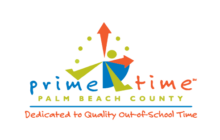9:00 am - 12:00 pm
I have no doubt that the training and general content we experienced over the three-month 6-sessions will help us to provide fun and meaningful program activities for hundreds of deserving youth in our afterschool programs. Through your training sessions, you have given us the skills and opportunity to help youth to think and plan their future in STEAM. You have given us some awesome ideas to plan and work with kids at all levels. I would strongly recommend your program to anyone who is seeking a way to get kids excited about STEAM.
Herbert LoweCounselorGalaxy E3 Afterschool Enrichment Program
VIRTUAL: Engaging Girls in STEAM: Inspiring Future Generations
CEUs: Upon successful completion of this training, the participant will earn 3 clock hours (.3 CEUs) of training.
Do you have girls in your program who are interested in Science, Technology, Engineering, Arts and Math (STEAM) and you are not sure how to support them to pursue their interests? Research shows that girls begin to lose both their interest and confidence in science and STEAM by middle school.
In this training, participants will be introduced to successful women in STEAM careers and learn how to create a safe, fun, STEAM learning experience for ALL YOUTH. Participants will leave this training with ready-to-go activities and videos that will introduce youth to professional women in STEAM and support girls (and all youth) to build confidence and skills in STEAM areas.
Training Objectives
Participants will:
Name strategies to create a safe learning space for girls to thrive in STEAM.
Categorize female STEAM professionals and career fields.
Implement STEAM activities for youth related to specific STEAM career fields.
Core Competencies Addressed
Core Knowledge Area – Learning Environment and Curriculum: Entry Level and Level 1.
4.B.- Design and implement a curriculum to enhance cognitive development
Core Knowledge Area – Interaction with Children/Youth: Entry Level and Level 1.
5.A.- Promote meaningful engagement, leadership and guidance of the children/youth
Primary QIS Scales Addressed
I-E Creating Safe Spaces
6 There is no evidence of bias on the part of staff based on religion, culture, race/ethnicity, class, gender, ability, appearance, or sexual orientation and there is evidence of mutual respect and active inclusion.
III-O Furthering Learning
3 Staff encourage young people to deepen or extend their knowledge or thinking (e.g., staff ask open-ended questions that encourage young people to analyze; define a problem.
5 Staff make comments, ask questions that guide young people in discovering an answer to a problem, or guide young people’s initiative in learning

